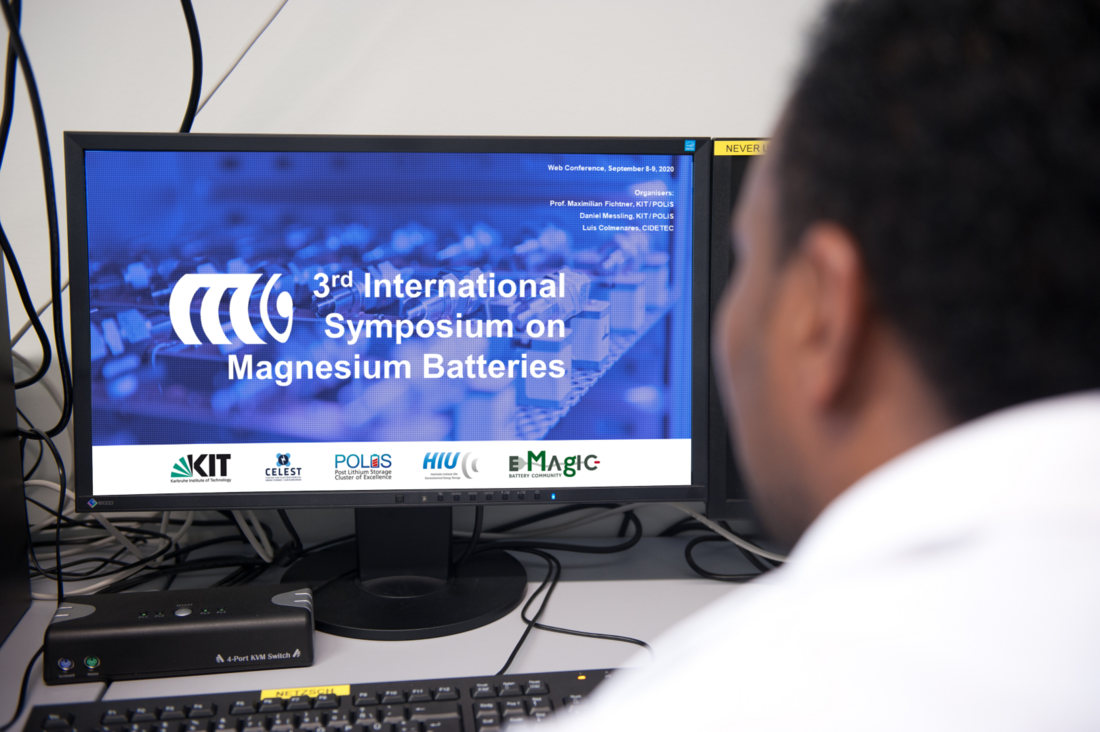3rd Magnesium Battery Conference

Efficient electricity storage systems are needed to temporarily store electricity from renewable sources or to supply electric cars with energy. A suitable technology for this could be the magnesium battery in the future, as it has a number of attractive properties. On September 8th and 9th, the leading experts exchanged views on the current status of and upcoming challenges for magnesium (Mg) as a battery raw material at the conference organized by POLiS and partners. Due to the corona pandemic, the conference, which was attended by more than 220 participants, this time took place digitally. The presentations of the eight invited speakers on the first day dealt with electrolytes and additives, electrode interfaces, cathodes, anodes, modeling and systems. The program of the second day of the conference was organized by the EU project E-Magic. In the first part, the researchers involved in the project presented their breakthroughs and in the second part, PhD students could present their research.
Maximilian Fichtner had initiated the conference in 2016 with the Helmholtz Institute Ulm of the Karlsruhe Institute of Technology (KIT). It was the first international conference on magnesium batteries until then. The second conference followed in 2018.
Compared to lithium, magnesium can give off and take up two electrons at a time, making it a very interesting material for battery research. Magnesium batteries are currently among the most researched candidates for lithium-free alternatives - not least because some car manufacturers are investing in research into magnesium batteries. The advantages are obvious: magnesium is less reactive and therefore less dangerous. With magnesium, no deposits form during charging, which is the main safety challenge when using lithium metal anodes. In addition, it is cheaper to produce because it reacts less quickly with air than lithium metal and is therefore easier to process. Magnesium is available in large quantities, for example in the form of dolomite, which results in lower prices. Magnesium batteries could also act as stationary energy storage devices, for example in wind power plants or solar fields.
